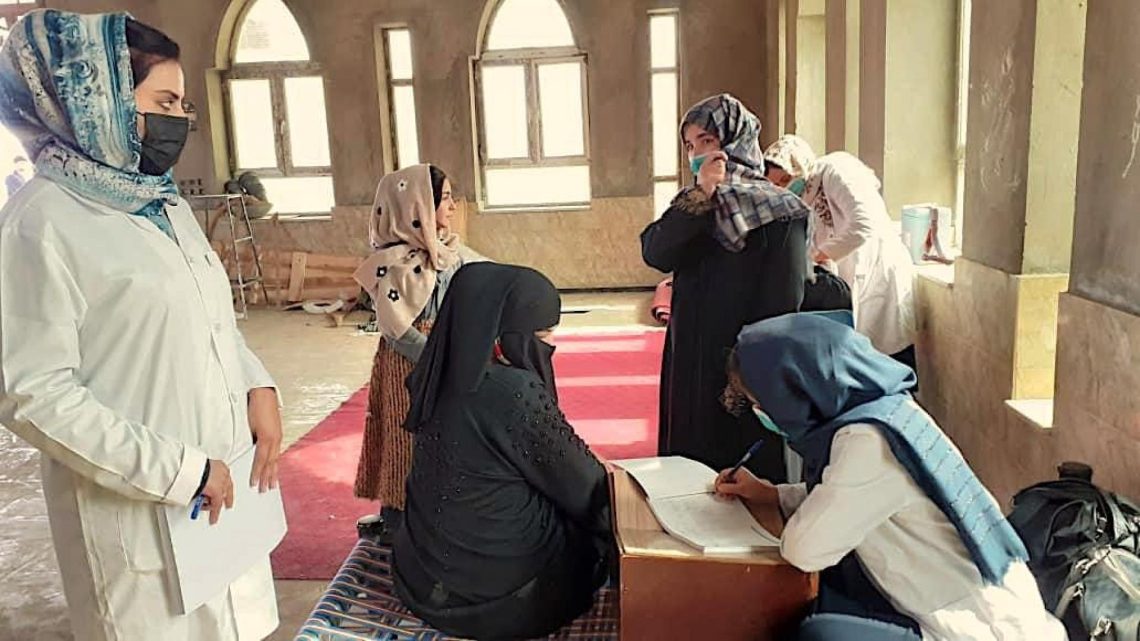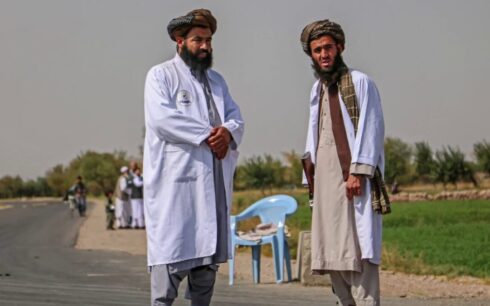KABUL, Afghanistan — A letter issued by the Taliban’s Ministry of Economy on December 26, reiterating the ban on Afghan women working in non-governmental organizations (NGOs), was ordered following a cabinet meeting led by Taliban supreme leader Hibatullah Akhundzada in Kandahar, sources told Amu TV on Monday.
The Kandahar meeting, attended by senior Taliban leaders and members of Akhundzada’s cabinet, emphasized strict enforcement of the December 2022 ban, sources said. Kandahar, often referred to as the Taliban’s power center, serves as the stronghold of their leadership and is home to Akhundzada.
The letter does not introduce new policies but reiterates the existing prohibition on employing women in NGOs and foreign organizations.
Health and education sectors remain exempt
Despite the reiteration of the ban, women working in health and education sectors remain exempt, according to the Agency Coordinating Body for Afghan Relief and Development (ACBAR). Following discussions with the Taliban’s Ministry of Economy, ACBAR outlined measures to ensure that women in these fields can continue their work under strict conditions:
Remote Work: Women can continue working online or from home.
Workplace Conditions: Employers must provide separate entrances, rest areas, and prayer spaces for female staff.
Dress Code and Escorts: Women must wear full hijab and travel with a male guardian (mahram).
Documentation: Employers must justify and document the presence of female employees, particularly in health and education roles.
Repercussions for Aid and Humanitarian Efforts
The Taliban’s restrictions on women’s employment in NGOs have hampered humanitarian operations in Afghanistan, a nation where over 23 million people rely on aid. United Nations reports warn that such policies are impeding life-saving assistance.
In remote areas, female aid workers remain essential. Workers like Madina, employed by a local NGO, continue distributing food to needy families despite mounting challenges. Meanwhile, healthcare professionals like Sediqa, affiliated with Médecins Sans Frontières, highlight the strain on Afghanistan’s fragile health system.
“There are so few medical staff available that some patients waiting for surgery lose their lives,” Sediqa said.
Education efforts have also been affected, but female teachers under NGOs such as the House of Kindness Foundation still support vulnerable children. “For these children, we act as parents because their families can’t support them,” said Abdul Qadir Salehi, the foundation’s founder.
Escalation following the Kandahar meeting
While the December 26 letter reiterates the Taliban’s December 2022 ban, sources say the timing underscores the influence of the Kandahar meeting, led by Akhundzada. The gathering reportedly reinforced the need to tighten control over women’s roles in the workforce, reflecting the Taliban’s conservative ideology and governance priorities.
Sources told Amu TV that some NGOs have already instructed their female employees to stay home until further notice, deepening the impact on humanitarian and development efforts across the country.
The United Nations and human rights organizations have repeatedly condemned the Taliban’s policies, warning that they exacerbate Afghanistan’s humanitarian crisis.
Razia, a Herat resident living in harsh conditions, voiced the dire need for aid. “My son had to borrow 1,000 Afghanis today to pay for his daughter’s treatment,” she said.
Critics argue that the Taliban’s strict control, coupled with the absence of an accountable government, allows them to impose such measures unchecked. As Afghanistan’s humanitarian crisis worsens, the country’s most vulnerable populations are left to bear the brunt of restrictive policies.





